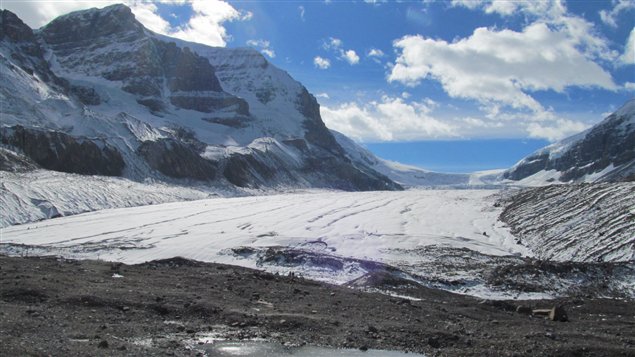The massive Mackenzie River Basin is of global importance and it faces two major threats, according to a report by scientists at the Rosenberg International Forum on Water Policy.
The basin’s network of rivers and boreal forest spans three Canadian provinces and two territories making up nearly 20 per cent of the country’s territory. It affects weather systems in North America and the world. It is among the most intact large-scale ecosystems in North America.
Climate change is profoundly affecting this cold-water basin full of permafrost which normally does not melt. “The ground is mixed with ice,” said John Pomeroy, a hydrologist at the University of Saskatchewan who contributed to the report. “When it does thaw which is what is happening right now the whole landscape collapses. Forests fall over and what we’re left with instead of big spruce forests are vast swamps.

Glaciers are retreating
“The glaciers and the headwaters are retreating rapidly and we’re starting to lose the margins of the Columbia Ice Field which is a terrible thing. It is a UNESCO World Heritage site. And then the river ice is breaking up much earlier in the spring,” said Pomeroy.
“There is a clear link between the freshwater flows of the Mackenzie and Arctic Ocean circulation,” reads the report. “These are thought to contribute in important ways to the stabilization of the regional and global climate.” The report concludes that the basin must be viewed as a part of the global commons and the world needs to have a say in how it is managed.
Contamination is another major threat to the Mackenzie River Basin. Pomeroy points to the massive development to extract bitumen from oil sands that’s expected to eventually cover an area the size of Switzerland.
“There’s leakage of oil and tar from these into the river already from the (tailing) ponds which we have no way to treat and to remediate at this point,” said Pomeroy noting the basin is home to native populations which depend on the extraordinary biodiversity there.
Industry should post bonds
Extractive industries should be required to post substantial financial bonds, recommends the report, to clean up their sites and remediate them. “That’s important,” said Pomeroy, “because there have been mines in northern Canada which have been abandoned without any remediation and they’ve left a terrible environmental legacy that the northern peoples simply cannot afford to clean up.”
Management of the basin needs to be based on science, notes the report. More money is needed for research and it suggests aboriginal populations should be involved in its management.
“There have been aboriginal peoples there for tens of thousands of years,” said Pomeroy. “They know what’s going on, what’s changing and what’s wrong. We need to listen to them and they need to be much more in charge of that decision-making.”
Global oversight recommended
Because of the global importance of the Mackenzie River Basin the report says there an independent, international, scientific advisory committee should be struck to oversee the research agenda and the monitoring.







For reasons beyond our control, and for an undetermined period of time, our comment section is now closed. However, our social networks remain open to your contributions.